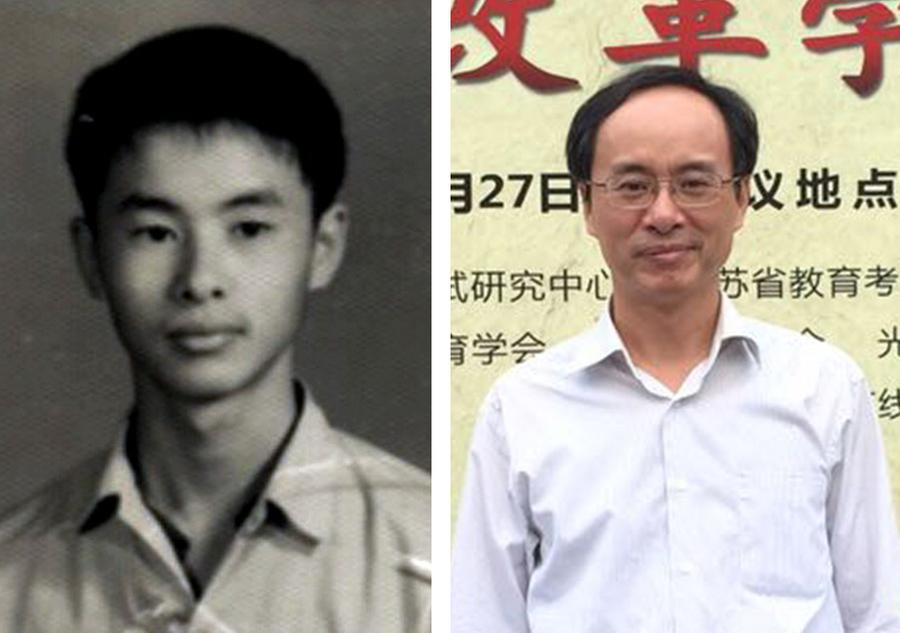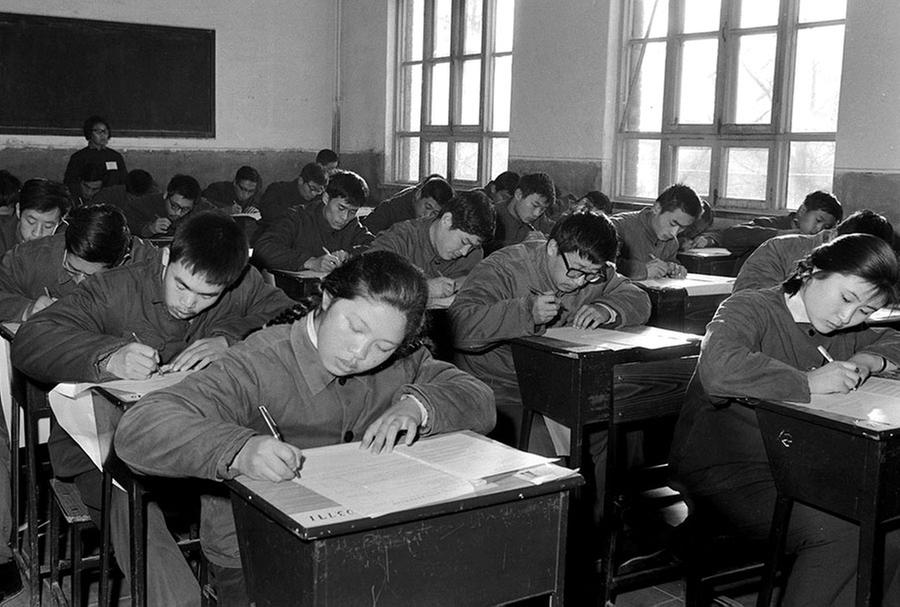Class of '77 revels in memories of event that changed lives
By Zhao Xinying and Luo Wangshu | China Daily | Updated: 2017-06-07 07:35
|
Students take the gaokao in 1977, Beijing.[Photo/Xinhua] |
Forty years ago, the gaokao, the national college entrance exam, was revived after an 11-year hiatus, now seen as a turning point for a generation, and for China. Zhao Xinying and Luo Wangshu report.
Although Liu Haifeng, director of the Institute of Education at Xiamen University, has won a host of achievements and been awarded many honorary titles during his academic career, he firmly believes his success is the result of an event that occurred four decades ago.
 |
| "Later, many became well-known figures and pillars in all walks of life." - Liu Haifeng, director of the Institute of Education at Xiamen University |
In the winter of 1977, the then-18-year-old hopeful was one of 5.7 million people who walked into exam halls nationwide to take the first gaokao given in more than 10 years, after it was suspended during the "cultural revolution" (1966-76).
The exam is China's foremost method of selecting academic talent, and one of the most important ways by which ordinary people can change their lives.
The 1977 exam is notable for two things: first, it was the only gaokao to be held during winter, not summer as is customary; and second, it resulted in the lowest acceptance rate since the 1952 creation of the gaokao and its related admissions system. Just 5 percent of examinees were granted places at colleges.
Liu was among the lucky ones. He had applied to study Chinese literature at Fujian Normal University, but after passing the exam he was unexpectedly offered a place in the history department at Xiamen University in his hometown in Fujian province. That offer set Liu on a decadeslong path of teaching and research at the prestigious establishment.
Even today, Liu, a renowned gaokao researcher, is grateful for the chance he was given, calling the experience "a historical coincidence".
For him, the revival of the exam was not just a hugely significant event for the examinees, but also a turning point for China.
"The gaokao in 1977 and the following two years selected about 1 million talents, who are called 'the new three classes' (of 1977, 1978 and 1979). Later, many became well-known figures and pillars in all walks of life, and they played key roles in China's reform and opening-up, laying a firm foundation for the country's economic takeoff and today's prosperity," said Liu Haifeng, director of the Institute of Education at Xiamen University.

























